GST : 24AAJCA7955Q1ZW
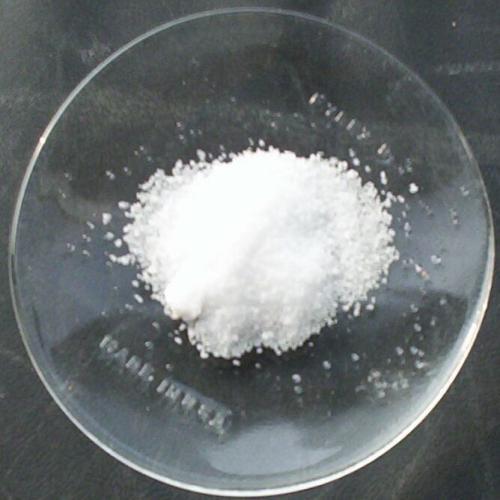
Lithium Chloride
Product Details:
- Poisonous YES
- Density 2.068 Gram per cubic centimeter(g/cm3)
- Physical Form Powder
- Storage Room Temperature
- Melting Point 605 - 614C
- Shape Granules
- Solubility Soluble in hydrazine, methylformamide, butanol, selenium(IV) oxychloride, 1-propanol
- Click to view more
X
Lithium Chloride Product Specifications
- Soluble in hydrazine, methylformamide, butanol, selenium(IV) oxychloride, 1-propanol
- Powder
- Granules
- YES
- 605 - 614C
- 2.068 Gram per cubic centimeter(g/cm3)
- 7789-43-7
- Room Temperature
- white solid hygroscopic
- Industrial
Lithium Chloride Trade Information
- 50 Per Month
- 2-12 Week
Product Description
Lithium chloride (LiCl) is an inorganic compound consisting of lithium and chlorine. It is a white crystalline solid, highly soluble in water.
Lithium Chloride Properties:
1. CAS Number: 7447-41-8
2. Chemical formula: LiCl
3. Molar mass: 42.39 g/mol-1
4. Appearance: white solid hygroscopic, sharp
5. Density: 2.068 g/cm3
6. Melting point: 605 - 614 degree centigrade
7. Boiling point: 1,382 degree centigrade
8. Solubility: Soluble in hydrazine, methylformamide, butanol, selenium(IV) oxychloride, 1-propanol
9. Flash point: Non-flammable
Lithium Chloride Applications:
1. Dehumidification: Lithium chloride is widely used in air conditioning systems and desiccant packs to absorb moisture from the air. It has a high affinity for water and can efficiently remove humidity.
2. Chemical Synthesis: LiCl is used in various chemical reactions as a catalyst or reagent. It is particularly useful in organic synthesis for reactions such as esterifications and acylations.
3. Lithium Metal Production: Lithium chloride is a key compound in the production of metallic lithium through electrolysis. It serves as an intermediary in the conversion of lithium carbonate to lithium metal.
4. Battery Electrolytes: In some lithium-ion battery formulations, lithium chloride is utilized as a component of the electrolyte solution. It helps facilitate the movement of lithium ions between the battery's cathode and anode during charging and discharging.
5. Pharmaceuticals: Lithium chloride is sometimes used in the pharmaceutical industry, particularly in the manufacture of certain medications. It can serve as a drying agent in drug formulations and as a precursor in organic synthesis.
6. Molten Salt Reactors (MSRs): Lithium chloride is used in some designs of molten salt reactors as a coolant and heat transfer medium. MSRs are a type of nuclear reactor that uses molten salt as either the primary coolant or as a fuel carrier.
7. Laboratory Reagent: In laboratories, lithium chloride is commonly used as a reagent for various purposes, including protein crystallization, DNA extraction, and as a denaturant for RNA in molecular biology applications.
8. Flux in Metallurgy: Lithium chloride is employed as a flux in metallurgical processes, aiding in the removal of impurities during the refining of metals such as aluminum and magnesium.
9. Heat Storage: Lithium chloride is utilized in certain types of heat storage systems due to its high heat capacity. It can absorb and release heat effectively, making it useful in applications such as solar thermal energy storage.
10. Hydrogen Storage: LiCl has been investigated for its potential use in hydrogen storage systems. It can form stable complexes with hydrogen, which could potentially be used for storing and releasing hydrogen in fuel cell applications.
Lithium Chloride FAQ:
Q. What are the common uses of lithium chloride?
Ans: Lithium chloride has various applications, including as a desiccant for dehumidification, in chemical synthesis, lithium metal production, battery electrolytes, pharmaceuticals, molten salt reactors, laboratory reagents, metallurgy flux, heat storage, and hydrogen storage.
Q. How does lithium chloride work as a desiccant?
Ans: Lithium chloride has a strong affinity for water and can effectively absorb moisture from the air. It forms hydrates when exposed to moisture, making it useful for dehumidification in air conditioning systems and desiccant packs.
Q. Is lithium chloride safe to use?
Ans: While lithium chloride is generally considered safe for its intended applications when handled properly, it can be corrosive and irritating to the skin, eyes, and respiratory tract. It should be handled with care and appropriate safety precautions should be followed.
Q. Can lithium chloride be used in batteries?
Ans: Yes, lithium chloride is used in some formulations of lithium-ion batteries as a component of the electrolyte solution. It helps facilitate the movement of lithium ions between the battery's electrodes during charging and discharging.
Q. What are the environmental concerns associated with lithium chloride?
Ans: Lithium chloride itself is not considered environmentally hazardous in normal usage. However, like any chemical compound, its disposal should be handled according to relevant regulations to prevent environmental contamination.
Q. Is lithium chloride used in medical applications?
Ans: Lithium chloride has limited applications in the pharmaceutical industry, primarily as a drying agent in drug formulations and as a precursor in organic synthesis. However, its main medical application is in the treatment of certain psychiatric disorders, where lithium carbonate is the more commonly used compound.
Q. Can lithium chloride be recycled?
Ans: Yes, lithium chloride can be recycled from various sources, including lithium-ion battery electrolytes. Recycling processes involve extracting lithium chloride and other valuable materials for reuse, which helps reduce environmental impact and conserves resources.
Q. What are some safety precautions when handling lithium chloride?
Ans: Safety precautions when handling lithium chloride include wearing appropriate personal protective equipment (PPE) such as gloves and goggles, avoiding direct contact with skin, eyes, and mucous membranes, and working in a well-ventilated area to prevent inhalation of dust or fumes.
Q. Where can I purchase lithium chloride?
Ans: Lithium chloride is available from chemical suppliers, industrial suppliers, and online marketplaces. It is typically sold in various grades and quantities, depending on the intended application.
Applications of Lithium Chloride
Lithium Chloride serves various industrial needs, taking advantage of its high solubility and hygroscopic properties. It is utilized in manufacturing and chemical synthesis processes.
Safe Handling and Storage
Due to its poisonous nature, Lithium Chloride should be handled with appropriate care and stored at room temperature avoiding exposure to moisture for safety and stability.
Material Properties
Lithium Chloride is characterized by its white appearance in granule form, offering unique physical and chemical traits valuable for industrial applications.
FAQs of Lithium Chloride:
Q: How should Lithium Chloride be stored?
A: Lithium Chloride should be stored at room temperature in a dry, controlled environment to prevent degradation due to its hygroscopic nature.Q: What are the key physical properties of Lithium Chloride?
A: Lithium Chloride is a white solid granule, hygroscopic, with a melting point range of 605-614C and a density of 2.068 g/cm.Q: When can Lithium Chloride be safely used?
A: Lithium Chloride can be used safely in industrial applications with proper handling due to its poisonous nature.Q: Where is Lithium Chloride commonly applied?
A: Lithium Chloride is commonly used in industries focused on chemical synthesis and specific manufacturing processes requiring its solubility and hygroscopic nature.Q: What is the process for using Lithium Chloride in chemical applications?
A: The process typically involves dissolving Lithium Chloride in compatible solvents like hydrazine, methylformamide, or butanol, depending on the application specifics.Q: Why is Lithium Chloride considered beneficial in industry?
A: Lithium Chloride is beneficial due to its versatile solubility properties and functionality in synthesis and processing in industrial environments.Tell us about your requirement

Price:
Quantity
Select Unit
- 50
- 100
- 200
- 250
- 500
- 1000+
Additional detail
Mobile number
Email
Other Products in 'Lithium Chloride' category
Back to top



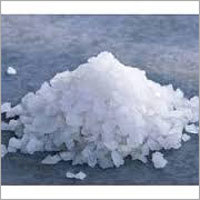
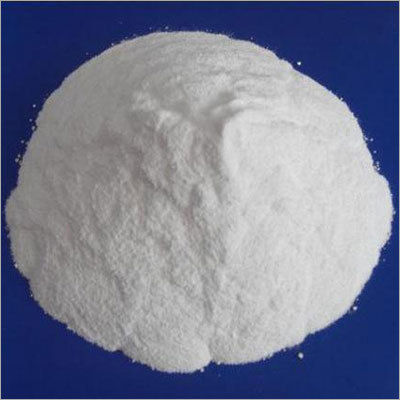
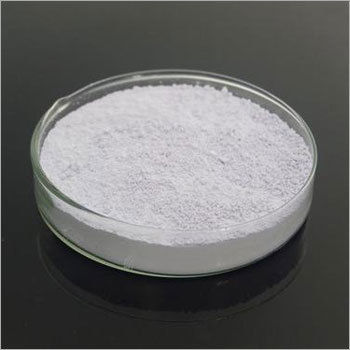
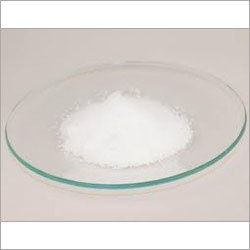
 Call Me Free
Call Me Free
 English
English Spanish
Spanish French
French German
German Italian
Italian Chinese (Simplified)
Chinese (Simplified) Japanese
Japanese Korean
Korean Arabic
Arabic Portuguese
Portuguese